
Le végétarisme : Pourquoi j'ai décidé de ne plus manger de cadavres
 8 min
8 min
Le végétarisme : Pourquoi j'ai décidé de ne plus manger de cadavres
J’avais 17 ans lorsque j’ai pris ma décision. À l’époque, influencée par ma grande sœur de 7 ans mon aînée à laquelle je voue une certaine admiration, j’ai choisi de ne plus manger de viandes.
Pourquoi?
Au départ, mes raisons étaient un peu floues, pour l’éthique et l’environnement, disais-je, mais secrètement, complexée à cet âge et consumée par la pression de l’apparence féminine adéquate, la rumeur mentionnant qu’un régime végétarien était plus santé (et donc, aiderait à maigrir, tel était ma logique) suffit à me convaincre.
Aujourd’hui, âgée de 31 ans, j’ai eu bien des années pour peaufiner et éclaircir les raisons de mon choix. En me demandant ‘qu’est-ce que la vie’, n’ont pas au sens spirituel (ça, ça été à un autre moment), mais plutôt au sens biologique et scientifique, j’en suis venue à la réponse simple que la vie, c’est l’énergie vitale qui anime un être afin que nous, l’humain, puissions le qualifier de vivant. Nous sommes en vie, les animaux, plantes, insectes, fungus etc. le sont aussi. Un pro viande pourrait me dire ‘et donc, ta salade vit et souffre!’, de là vient le deuxième point. Il n’y a plus de preuves à faire; les animaux souffre physiquement et même psychologiquement. Cela ayant été démontré principalement en ce qui concerne les animaux de compagnie : chats et chiens.
La dépression chez les animaux
Par exemple, dans un article publié sur le site de Radio Canada en janvier 2019 traitant de la dépression chez les animaux, la vétérinaire Karine Eusanio de la clinique Grey Cove de Dieppe nous mentionne croire que les gens sous-estiment souvent les émotions que nos animaux de compagnie peuvent ressentir. Il y aurait suffisamment de preuves pour montrer que certains animaux souffrent de dépression saisonnière. Même s’il n’y a pas beaucoup de recherches sur la question, la vétérinaire croit que les symptômes sont facilement identifiables. Une diminution du niveau de l'énergie, un manque de motivation à sortir de la maison et même le désintérêt d'interagir avec les humains de son entourage peuvent être des signes de dépression saisonnière.
Le droit à la non-souffrance
Les animaux devraient avoir le ‘privilège’ du droit à ne pas souffrir. C’est un droit qui est octroyé aux humains, mais pas aux animaux. Humains, nous nous considérons supérieurs dû à notre intelligence, mais donc… cela voudrait-il dire que nous avons tous les droits sur les autres formes de vie jugées ‘inférieures’ dû à cette intelligence?
Si moi, j’ai droit à une chance d’accéder à une vie me permettant l’accès au bonheur, je considère que toute créature vivante devrait aussi avoir ce droit. Avoir ce droit ne mènera pas nécessairement à une belle vie, mais nous, humains, nous sommes du moins en contrôle et pouvons agir, sommes libres, de faire ce que nous voulons de notre vie. Un veau né dans un élevage industrielle n’a aucun droit sur sa vie. Il n’ait avec un seul objectif à son existence : être engraissé pour être tué, puis manger. Il n’y a aucune autre issue. Il nait et son destin est déjà tout tracé, tout comme un produit qui serait fabriqué dans une usine dont la suite des choses est évidente : être emballé, transporté, vendu, consommé, puis jeté.
Je ne critique pas le fait de manger de la viande comme tel, mais c’est la façon de le faire que je conteste. Si un chevreuil vit tranquillement sa vie à brouter dans la forêt, qu’il a eu le temps de produire une descendance avec 4-5 femelles au cours de sa vie et qu’un chasseur aguerrit le chasse, ça peut aller.

Certaines cultures actuelles ou du passé vont même jusqu’à honorer l’animal chassé après lui avoir enlever la vie. La chasse, modérée et dans un but de consommation de l’animal pourrait être perçue comme ‘naturelle’. Au même titre où une proie dans la nature peut soudainement voir sa vie raccourcie par un prédateur en chasse. Dans le cas du chevreuil, c’est seulement que le prédateur est un homme plutôt qu’une meute de loups et bon, qu’il est armé d’un fusil aussi.
Mais notre mode de production actuel nous fait oublier qu’il y a une vie derrière ce steak ou cette escalope de porc. Un pain tranché fabriqué en usine par des grosses machines ou des croquettes de poulets ayant été fabriquées après qu’un flot de petits poulets aient été broyés… même chose, un produit.
On monétise la vie.
Tant qu’il y aura de l’argent à faire, il y aura de la souffrance.
Mais il y a de l’espoir
Mon cheminement vers le végétarisme découle d'une croyance profonde dans le droit de tous les êtres vivants à vivre sans souffrance. Il ne s'agit pas seulement d'un choix personnel ; il s'agit de reconnaître la valeur inhérente de chaque vie. Si mes raisons ont évolué au fil du temps, le principe fondamental demeure désormais : aucune créature ne devrait endurer la souffrance pour des raisons de profit ou de commodité. En adoptant la compassion et la pleine conscience dans nos choix alimentaires, nous pouvons ouvrir la voie à une relation plus éthique et plus harmonieuse avec le monde qui nous entoure. Alors, remettons en cause le statu quo, remettons en question nos habitudes de consommation et aspirons à un avenir où l'empathie triomphera de l'exploitation. Ensemble, nous pouvons faire la différence et construire un monde plus compatissant pour tous les êtres.









 English
English
 Français
Français
 Deutsch
Deutsch
 Italiano
Italiano
 Español
Español



 Contribuer
Contribuer





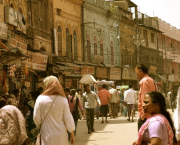
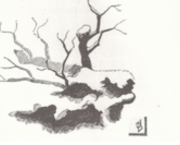
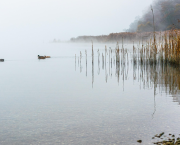
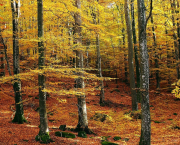

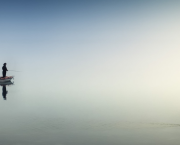
 Tu peux soutenir les auteurs qui te tiennent à coeur
Tu peux soutenir les auteurs qui te tiennent à coeur






Alexandre Leforestier il y a 1 an
Interesting !